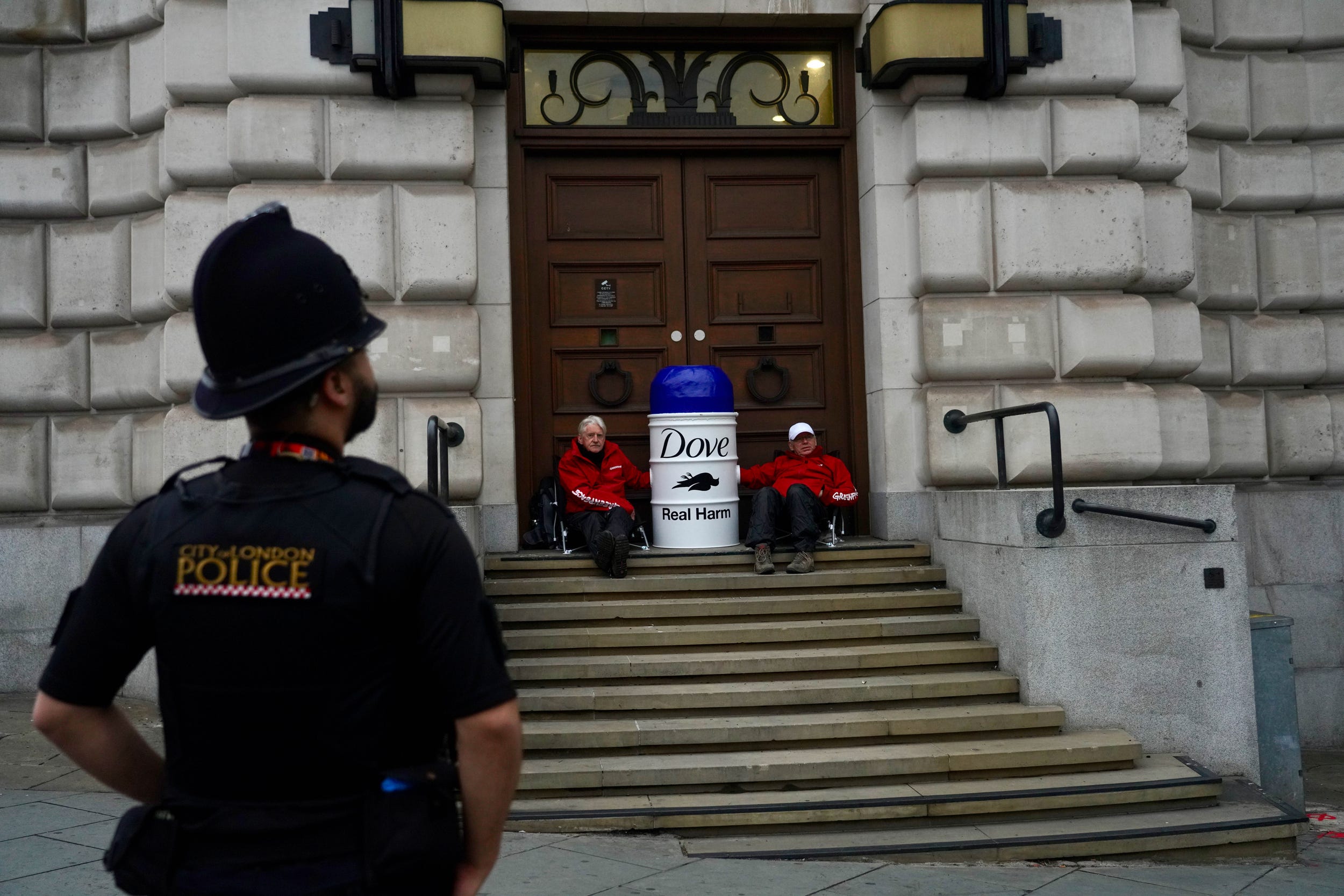Greenpeace block access to Unilever HQ in single-use plastics protest
Members of the environmental campaign group locked themselves on to barricades made from giant Dove products, one of Unilever’s biggest brands.

Greenpeace UK activists blocked access to Unilever’s headquarters in central London on Thursday morning, claiming the consumer goods company is “trashing the planet and harming communities” through single-use plastics.
Members of the environmental campaign group locked themselves on to barricades made from giant Dove products, one of Unilever’s biggest brands, with each product’s logo changed to a dead dove.
Greenpeace is calling on Unilever to remove single-use plastic from its operations and phase it out fully within a decade, starting with plastic sachets, which they say are “near impossible to collect and recycle”.
Will McCallum, co-executive director at Greenpeace UK, said: “Unilever’s plastic pollution is trashing the planet and harming communities.
“They hide behind the clean, respectable face of brands like Dove but we’re here today peeling back this facade to show the ugly truth behind it.”
He added: “They must stop selling plastic sachets now, commit to phasing out single-use plastic within a decade, and advocate for this same level of ambition at the final round of UN Global Plastics Treaty negotiations in November.”
Greenpeace UK is calling on Unilever to back a treaty that caps and phases down plastic production by at least 75% by 2040 at these UN negotiations.
A Greenpeace International report published in November last year claimed Unilever was the biggest corporate seller of polluting plastic sachets, small throwaway plastic packets of consumer products, selling 1,700 a second in 2023.
The protesters said they had enough provisions to allow them to block the entrances to the building for the whole of Thursday.
A spokesman for Unilever said: “Our ambition at Unilever is clear: an end to plastic pollution through reduction, circulation, and collaboration. We recognise the important role that we play to help make this ambition a reality – which is why plastic is one of our four sustainability priorities.
“We’ve already reduced our virgin plastic use by 18% and increased our use of recycled plastic to 22% – recognised by the Ellen MacArthur Foundation as one of the businesses making the most progress to reduce its virgin plastic packaging footprint.
We are fully committed to working with industry partners and other stakeholders to develop viable, scalable alternatives that reduce plastic waste
“However, our work is far from over. Our updated plastic goals are stretching and focus on the areas that we know will have the most impact – such as continuing to reduce our virgin plastic use and developing alternatives to hard-to-recycle flexible plastic packaging, like plastic sachets.
“We are fully committed to working with industry partners and other stakeholders to develop viable, scalable alternatives that reduce plastic waste.
“But overcoming a challenge of this scale will require more systemic change. That’s why we’re calling for a UN treaty on plastic pollution that sets legally binding global rules and addresses the full lifecycle of plastic.”
Bookmark popover
Removed from bookmarks